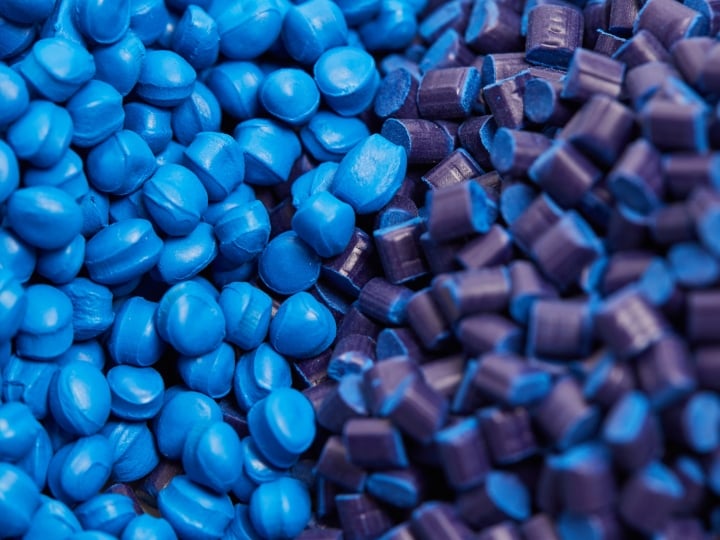HT-GPC characterisation of molecular weight distribution and structure of polyolefins, delivering insights to accelerate polymer development and support consistency and quality in production
High-temperature gel permeation chromatography (HT-GPC) is a sophisticated analytical technique that scientists use to determine molecular weight distribution and structure of polymers, particularly for polyolefins, using high-temperature conditions.
The analysis of polymers such as polyolefins, whose molecular weight distribution is directly linked to physical properties such as melt viscosity, toughness and crystallinity, which are widely used in various applications such as aerospace, automotive, and building products, is complicated to analyse. These materials generally have a high degree of crystalline components, and analysis often requires elevated temperatures and unusual solvents for sample dissolution and solubility.
With conventional GPC, analysis is conducted at ambient temperatures. However, at elevated temperatures, polyolefins and many other polymers exhibit better solubility and molecular behaviour. By performing GPC at high temperatures (typically 160°C), the polymer's solubility is improved, leading to more accurate and consistent results, especially for polymers that are difficult to dissolve at lower temperatures. HT-GPC provides improved resolution and more reliable data for polymers like polyolefins, which may not fully dissolve or behave consistently at room temperature.
Specialist equipment and supervision by experienced polymer scientists are both key to successful analysis and interpretation of resulting data. For example, two samples of the same polymer resin may have identical tensile strengths and melt viscosities. However, they differ considerably in their capacity to be fabricated into usable, durable products. These differences can be attributed to small yet very significant variations in the molecular weight distributions of two resin samples. If they are not detected, they may result in defects in the product.
HT-GPC for Polyolefin Characterisation
Polyolefins are produced through polymerisation processes, where variations in molecular weight distribution, polymer branching, and chain architecture can influence the polymer's physical properties, such as melt flow index (MFI), tensile strength, and crystallinity.
Our polymer scientists use HT-GPC to evaluate these characteristics, generating precise analysis of molecular weight distributions (MWD) and identifying different polymer fractions that contribute to the overall material properties. We focus on the determination of these key parameters:
Molecular Weight Distribution (MWD): Polyolefins typically exhibit a broad MWD, where the polymer chains vary in size. HT-GPC can determine the number average molecular weight (Mn) and weight average molecular weight (Mw), which are essential for understanding the polymer's mechanical properties and processing behavior.
Polydispersity Index (PDI): This ratio of Mw to Mn gives insights into the uniformity of the polymer chains. A narrow PDI suggests a uniform polymerisation process, while a broad PDI indicates the presence of different fractions, which may affect the final properties of the polymer.
Chain Architecture: HT-GPC can help identify branched or cross-linked structures in a polymer which can influence properties such as behaviour, crystallinity, and the polymer's processing behaviour. This is particularly important for polymers such as polypropylene, which can be modified to have different molecular structures for specific applications.
Thermal Stability: The degradation behaviour of polyolefins at high temperatures can be studied using HT-GPC, driving an understanding of the polymer's thermal stability during processing.
HT-GPC Analysis Expertise
Our polymer scientists use HT-GPC to support our clients in developing and quality control polyolefin-based products. Our data and insights allow manufacturers to fine-tune polymerisation conditions to achieve specific molecular weight distributions, ensuring that the final product meets the required performance criteria.
From raw materials to final products, we deploy HT-GPC to analyse polyolefins across all stages of production to help ensure consistency in quality and performance.
We also support the development of new polyolefin formulations, where specific molecular structures are targeted for specialised applications, such as high-performance films, fibres, and coatings and routinely carry out HT-GPC analysis for various polymer types, including polyethene and polypropylene, along with other polymers, as listed below.
HT-GPC polymer analysis experience
- Polyethylene
- Polypropylene
- Poly Ethylene-Vinyl Acetate
- Poly Ethylene-Methyl Acrylate
- Butyl rubber and other types of Rubber
- Poly Ethylene Propylene Diamine Rubber
Your Polymer Testing Partner
Our polymer testing labs have over 30 years of experience supporting global innovators with HT-GPC. Coupled with a wide range of polymer chemical and physical testing expertise, we support both research and production for sectors where understanding and controlling polyolefins' molecular weight distribution and chain architecture is essential for optimising material properties and performance in a wide range of products.
By applying our expertise in polymer testing and analysis using advanced techniques such as HT-GPC, we can help you overcome materials testing challenges, performance and quality to give your business a significant commercial advantage.
Polymers News and Events
Meet our team at K2025 Reach out now
LEARN how CircularAssure helps you to close the loop in the circular economy for plastics
TECHNICAL TALK: Circularity - Addressing Challenges in Material Development through Evaluation Programs
WHITE PAPER: Quality Assurance Strategies for Recycled Plastics
WHITE PAPER: Materials Characterisation for the Automotive Supply Chain
BROCHURE: Injection Moulding Test Specimen Production Catalogue
ARTICLE: Processability and evaluation programmes for recycled plastic materials
ARTICLE: Adhesives Quality Assurance Testing Programs
CASE STUDY: Polymer Surface Contamination Resolution
CASE STUDY: Elastomer Seal Material Failure
CASE STUDY: Polymer Failure - Distribution and Dispersion of Fillers


